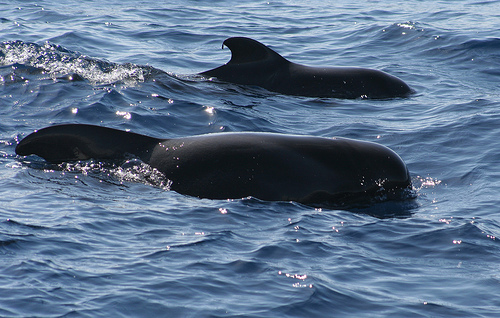Saving Whales and the International System

Hendrick Hertzberg has a strange-but-true post on a new Navy sonar program that's going to have potentially devastating consequences for the world's whale population: "The study will take at least two years, during which our Navy—and the Russian and Chinese navies, too, among others—will continue to drive many of these sublime, highly intelligent animals to their deaths. And, no matter what the findings, it does not seem likely that the Navy will go all PETA on us and decide to get along without its way cool gadgets."
He suggests that this might be a good time for the US, Russia, and China to try to negotiate some submarine-related arms control agreements rather than spending money on new whale-killing ways for us to track each other's subs. Obviously, an issue like that's embedded in larger questions, but if you read my posts from yesterday on Russia and China you'll be able to guess that I agree. The biggest threats we face -- climate change, nuclear proliferation, transnational terrorism -- are all things that can only be tackled through cooperation among the major powers. The good news is that the major powers have good reason to want to cooperate on those issues. The bad news is that all of those countries have internal constituencies invested in legacy conflicts and the legacy budgets they fuel.
Photo by Flickr user Hisgett used under a Creative Commons license
Matthew Yglesias is a former writer and editor at The Atlantic.